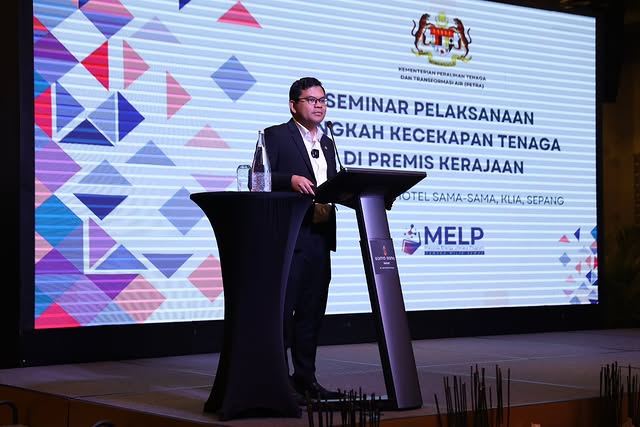
Malaysia’s Deputy Minister Akmal Nasrullah stressed that domestic needs take priority in energy trade. (Photo: PETRA)
On July 30, Malaysia’s lower house of parliament passed the Electricity Supply Amendment Bill, strengthening regulatory controls over the import and export of electricity. Deputy Minister for Energy Transition and Water Transformation (PETRA), Akmal Nasrullah Mohd Nasir, emphasized during the parliamentary session that the government would prioritize domestic electricity needs before considering exports.
Strict licensing, penalties for cross-border power trade
The newly passed amendment clearly states that companies are prohibited from importing or exporting electricity without a license. Unauthorized power trading could result in fines of up to RM30 million (about USD 7.04 million) and 10 years of imprisonment. Even licensed electricity traders could face penalties of up to RM5 million (about USD 1.17 million) and 3 years in jail for non-compliance.
Akmal underscored the strategic importance of electricity trade to the nation. He noted that heavy penalties are meant to deter illegal activities, with energy security being the government's top priority. Power exports will only be considered once the domestic grid is sufficiently stable. In case of shortages or supply disruptions, Malaysia can draw on neighboring countries via the ASEAN Power Grid (APG).
Malaysia currently maintains a power reserve margin of 23% to 28%. Akmal also clarified that electricity trading occurs between businesses and will not affect consumer electricity prices. Details such as capacity limits and licensing criteria will be finalized by the National Energy Commission and announced later.
.jpg) Malaysia to legislate power import and export trade. (Photo: iStock)
Malaysia to legislate power import and export trade. (Photo: iStock)
Lawmakers raise concerns over clarity of power trade regulations
However, some members of parliament expressed concerns that the amendment lacks clarity and could hinder the development of the green electricity market.
Ahmad Amzad Hashim, MP for Kuala Terengganu, urged the government to ensure fair distribution of electricity export revenues. He warned against scenarios where certain states supply the energy resources but receive little in return.
Yeo Bee Yin, MP for Puchong in Selangor, advocated adopting a Third Party Access (TPA) model to attract foreign power producers and retailers. However, she stressed the need for clear entry thresholds and rules, warning that the absence of such frameworks could stifle competition or create barriers for small renewable energy firms.
Puah Wee Tse, MP for Tebrau in Johor, questioned whether Malaysia’s renewable energy supply is sufficient to meet both domestic and export demands. He argued that clean energy should be prioritized for high-growth industries such as data centers and semiconductors.
As the current ASEAN chair, Malaysia will lead efforts to finalize the ASEAN Power Grid (APG) blueprint at the upcoming ASEAN Summit in October. The amended Electricity Supply Act is seen as a necessary step in aligning national policies and building internal consensus in preparation for future cross-border electricity trade.
Source: The Edge Malaysia、The Star
.jpg)


